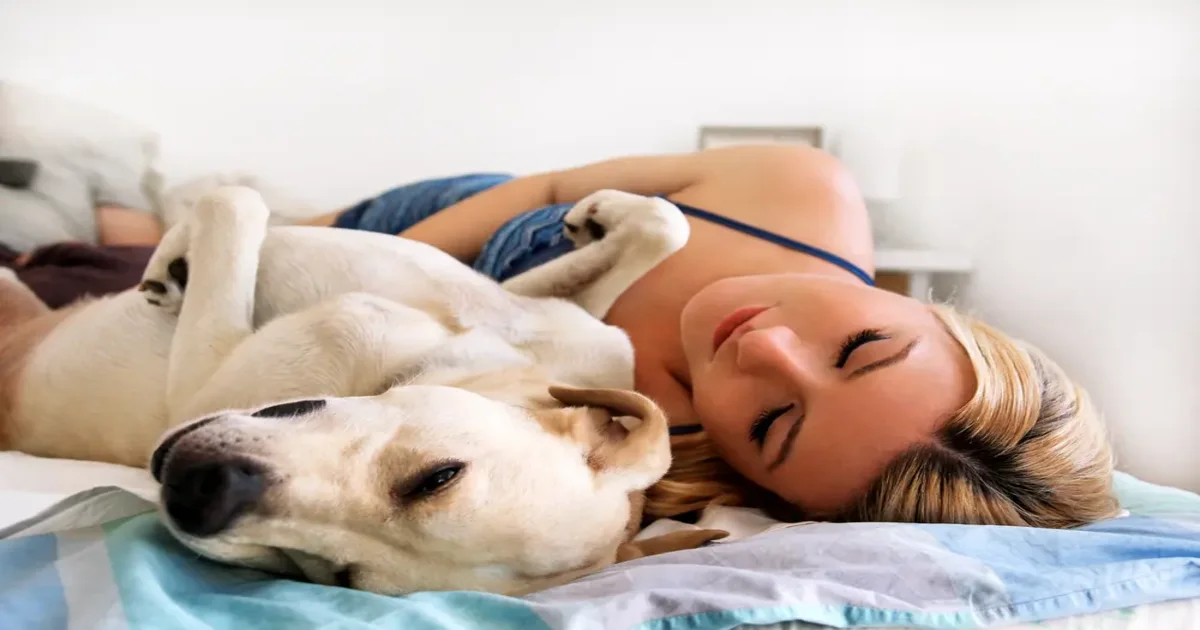Sleeping well indicates sound health and wellness in dogs, and your dog must sleep well enough for healthy living.
Furthermore, knowing how many hours of sleep do dogs need daily helps with ideas of what and when to allow your dog to sleep.
Meanwhile, this article discusses how many hours of sleep dogs need daily and when to allow your dog to sleep.
How many hours of sleep do dogs need?
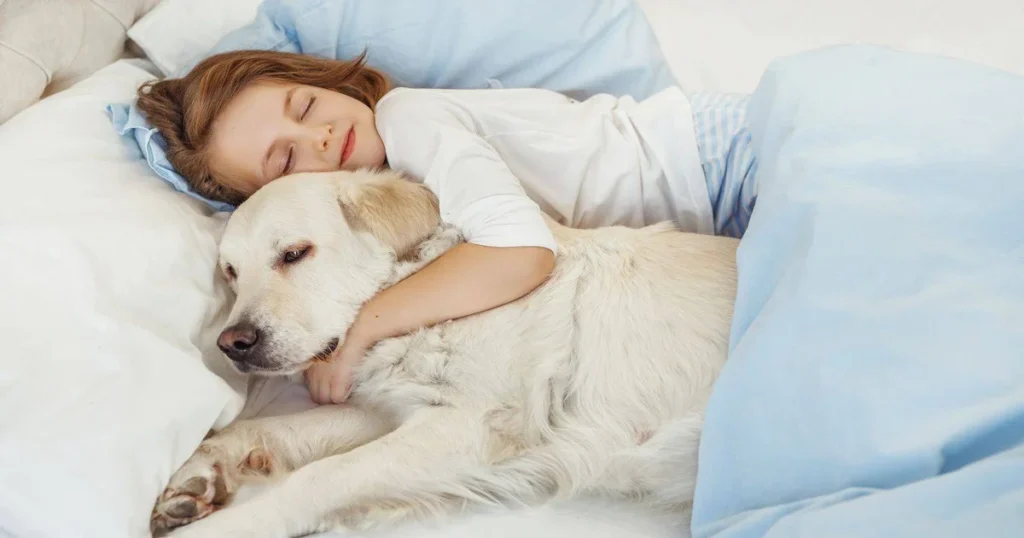
Dogs need to sleep a minimum of 12 – 14 daily, Which includes both day and night. Meanwhile, Young dogs sleep more than older ones. Puppies of 10 to 12 weeks old sleep for 18 to 20 hours daily, while dogs of weeks 14 to 18 sleep for 15 to 18 hours daily.
Dog’s hours for sleeping change the older they become, but during older stages, they sleep an average of 12 to 14 hours daily to remain healthy since they don’t do any work, unlike humans.
Sleep is essential in the development and health balancing of dogs. Sleeping helps keep their brain active and helps them remember every lesson you taught them during the day.
Furthermore, the dog sleeps both day and night, but 75% of their sleep comes at night, for puppies and younger dogs sleep far more than usual dogs generally because it helps in their growth and development.
Read More: Can Dogs Eat Ravioli?
And it’s important to note that dog sleeping hours aren’t equal; large breed dogs sleep more than breed small dogs, and younger sleep more than older dogs; it just depends on how their system works.
What Factors Affect How Much Sleep Dogs Need?
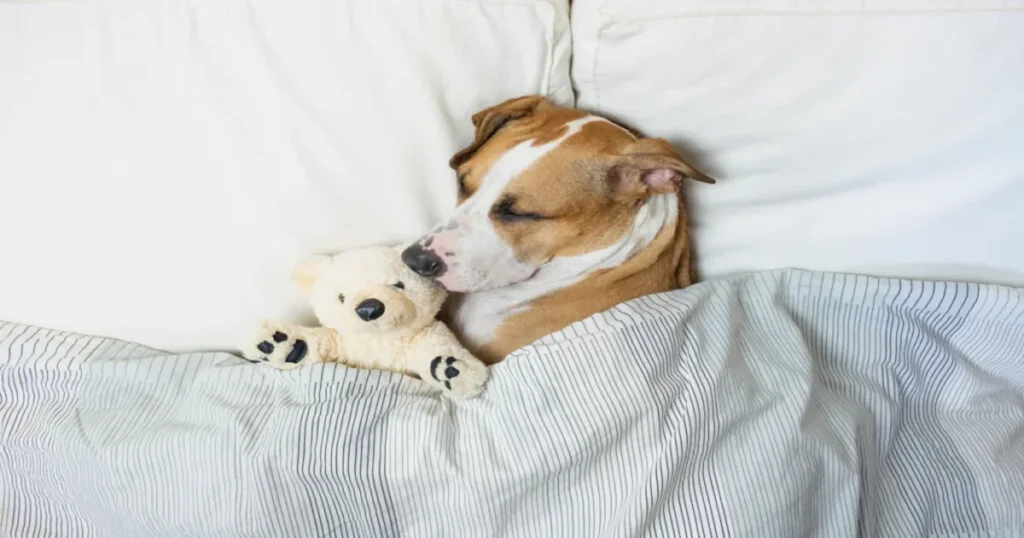
Various factors affect how many hours of sleep a dog must sleep daily. Which are:
- Dog Age:
Age is one of the main factors contributing to the number of hours a dog should sleep daily. Younger dogs sleep more than older dogs.
Young dogs of weeks 10 to 14 sleep for 18 to 20 hours, which is over 85 percent sleep daily, while older dogs sleep a lot more, which is between 12 to 14 hours daily.
- Dog Size:
Large dogs are likely to sleep more than smaller dogs because of their size. The size of a dog affects how much sleep they’ll sleep daily.
- Exercise:
Regular Exercise is a factor that increases the demand for more rest in a dog, which is also a factor that can affect how much sleep a dog will sleep daily.
How To Help Your Dog Get Quality Rest Time
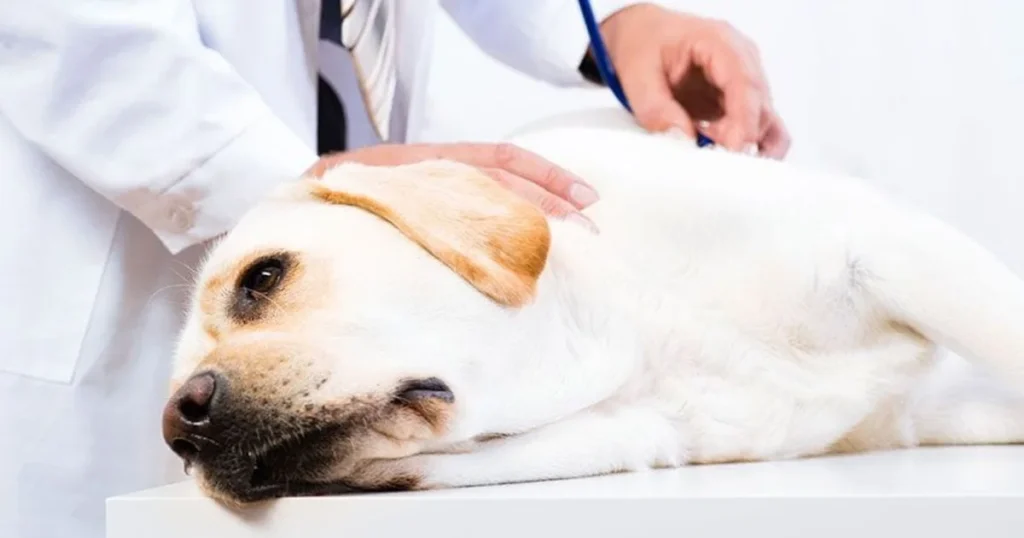
Helping your dog get the necessary quality sleep Required to rest appropriately will benefit their health and wellness. This is why you need to follow the guide below to help your dog get Quality rest time.
Which are:
- Provide a comfortable sleeping environment:
Creating a conducive and comfortable space for your dog helps them get quality rest, Ensure that the place is spacious, silent, and comfortable. Furthermore, you must provide them with a cozy bed or crate to help them sleep properly.
- Stick to a consistent sleep schedule:
Sticking to a regular sleeping routine helps your dog get quality rest; It’s advisable to maintain a consistent bedtime and wake up simultaneously each day. This is because dogs thrive on daily routines.
- Engage your dog in regular Exercise:
Constant Exercise helps your daily sleep well; ensure you engage your dog in regular Exercise of at least 30 minutes daily, walking, running, or fetching play.
- Provide mental stimulation:
Mental stimulating puzzle toys or activities can help your dog fall asleep once they get tired—endeavor to provide them with a puzzle toy or various mentally exciting activities to help them sleep well.
- Reduce disturbances:
Lousy or bright light can disturb your dog during their sleep, so try to avoid such in their sleeping space by blocking out light and providing a calm environment. Also, learn to allow your dog to sleep. Cuddling your dog is lovely, but be sure you’re not disturbing their daily sleeping routine.
What Are Common Sleep Disorders in Dogs and How Can They Be Treated?
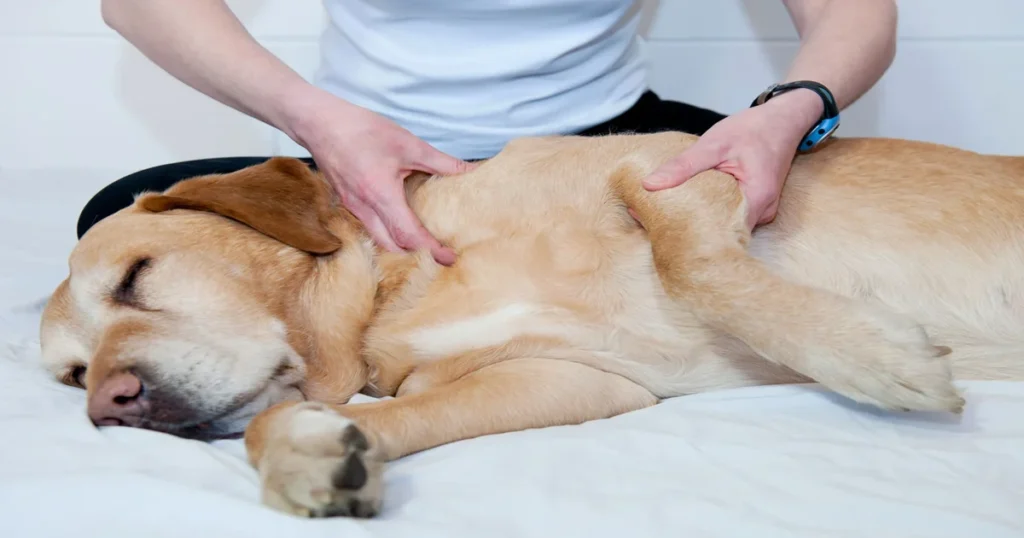
Dogs have various common sleeping disorders, which we have listed below.
- Insomnia:
Insomnia is a sleeping disorder in dogs that affect their falling asleep habit or staying asleep.
This disorder is typically caused by medical conditions, anxiety, or environmental factors. The treatment for insomnia depends on the specific conditions causing it, and if it’s Environment factors, it’s crucial to avoid loud noise and turn off all lights when they’re going to bed. Moreover, in situations of anxiety: ensure you engage your dog in regular Exercise to avoid insomnia.
- Sleep apnea:
Sleep apnea is Another sleep disorder that interrupts dogs’ breathing while sleeping. This condition is common among large dogs and can be caused by various factors such as obesity, allergies, or medical condition.
It’s best to visit your veterinarian in situations like this to examine your dog correctly for any health damage or sickness.
- Narcolepsy:
Narcolepsy is also a sleeping Disorder that rarely occurs in dogs, where dogs suddenly fall asleep uncontrollably during special activities such as; eating or playing. A genetic disorder generally cusses this condition, which needs the attention of a professional veterinarian.
- Restless leg syndrome:
Restless leg syndrome is a sleeping disorder commonly caused by anxiety, nerve damage, or other medical conditions. It can result in repetitive leg movement or jerking while asleep, causing them to wake up frequently. The best decision is to visit your vet to examine your dog for any health challenges.
Frequently Asked Questions
Is it normal for a dog to sleep 20 hours a day?
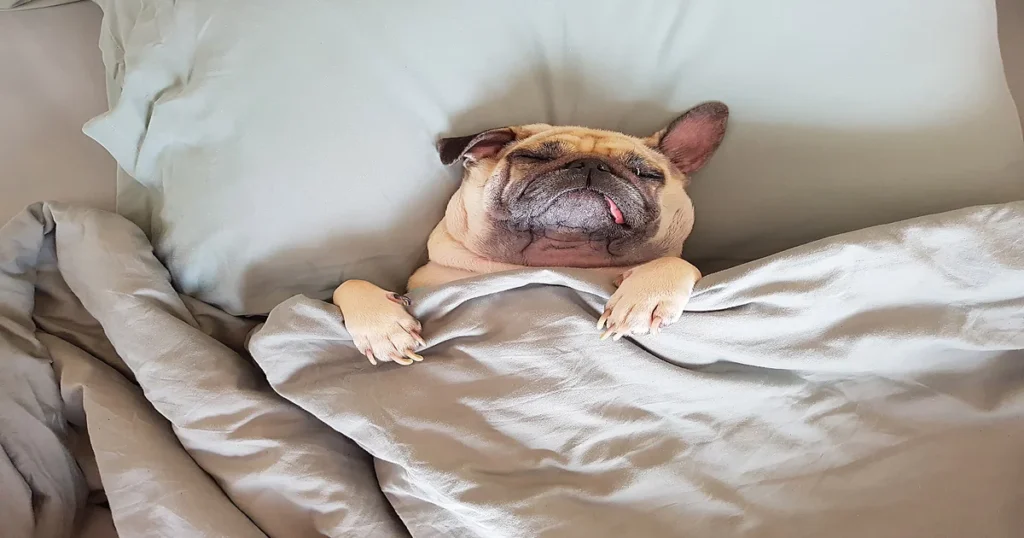
Yes, younger dogs are prone to sleep for 18 to 20 hours daily for healthy growth and system development. If you notice your older dog sleeping much more than usual, it’s ideal for making proper checks or visiting the veterinarian to examine your dog for possible illness or instruction.
Why do dogs sleep so much?
Sleeping helps in the development of dogs, and it also helps their brain to function correctly; dogs don’t have any special activities to carry out like human beings; their daily routine is waking up, eating, drinking, and sleeping back.
Conclusion
Dogs are prone to sleep, and sleeping Is also generic, which helps them maintain healthy bodies and retentive memory.
Finally, That’s all for this article, “how many hours of sleep do dogs need” dog sleeping hours aren’t equal. It typically depends on the dog’s breed, size, and age.
